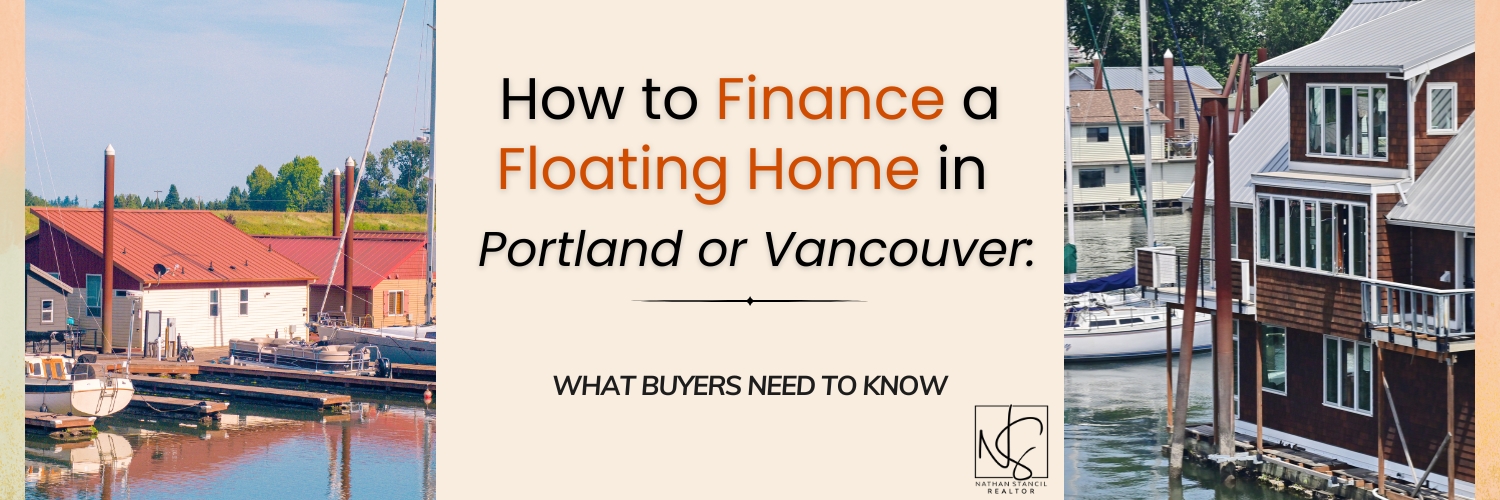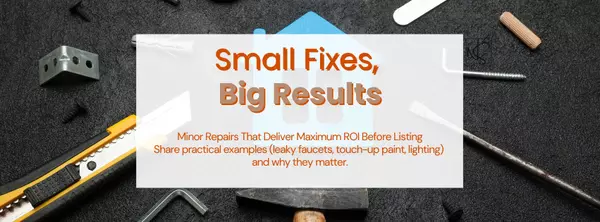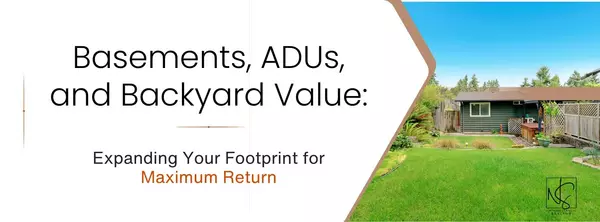How to Finance a Floating Home in Portland or Vancouver (June 2025 Guide)

Imagine waking up to the shimmer of sunrise on the Columbia or Willamette River, stepping out onto your floating deck, and paddling into the morning mist. The floating home lifestyle is iconic in Portland and Vancouver—but financing one is not like buying a traditional house. If you're thinking about making a floating home your next move in June 2025, here's what you need to know.
Why Floating Home Financing Is Unique
Floating homes in Portland and Vancouver often fall outside traditional real estate categories. When the slip (the space where the home is moored) is rented, the home is considered personal property—not real property—which means standard FHA or VA mortgages don't apply. Specialized lenders and non-traditional loan structures are essential.
Step 1: Determine Slip Ownership
Before approaching any lender, clarify whether the slip is owned or rented:
-
Owned Slip (HOA/Co-op): Treated more like real estate. Buyers own both the home and a share in the moorage. This structure is more secure and often appreciates in value.
-
Rented Slip: Buyers pay monthly rent to the moorage. This can lower upfront costs but limits financing options and long-term stability.
This distinction affects everything from loan eligibility to resale value.
Step 2: Prepare for a Larger Down Payment
In June 2025, most lenders still require at least 20% down for floating homes. With no government-backed options, buyers must show strong financial health and liquidity. Plan your budget accordingly.
Step 3: Work with Niche Lenders
Most banks won’t touch floating home loans. In the Portland-Vancouver region, two experienced lenders stand out:
-
Trailhead Credit Union – Offers purchase loans, refinancing, and HELOCs for floating homes.
-
Banner Bank – Provides purchase and construction loans, often with favorable terms.
Expect a bit more paperwork and slightly longer processing times than with conventional mortgages.
Step 4: Consider the Float’s Condition
The float—the structure your home sits on—is critical to loan approval. If it's in poor shape, lenders may deny financing.
-
Homes under $150,000 are frequently cash-only due to float issues.
-
A professional dive inspection (approx. $750) is commonly required.
-
Concrete floats and well-maintained log floats are preferred.
This is a key area of concern in the Portland floating home market, especially as older homes enter resale.
Step 5: Obtain Specialized Insurance
Floating home insurance is required for financing and must come from a provider familiar with marine properties:
-
Hokanson Insurance Agency (Portland-based)
-
Anchor Marine Underwriters
Policies depend on:
-
Home age
-
Float type
-
Primary vs. secondary residence status
Have your insurance lined up before closing—your lender will need to see proof.
Step 6: Understand Ongoing Ownership Costs
Floating homes come with unique monthly expenses that buyers must budget for:
-
Moorage/HOA Fees: $190 – $1,100+ monthly
-
Property Taxes: Often lower for rented slips
-
Insurance: Typically higher than land-based homes
-
Utilities: Sometimes bundled in HOA fees
-
Maintenance Fund: $100 – $500+ monthly
-
Dive Inspection Reserve: Budget $20 – $40/month
These costs can vary based on location—moorage fees in Portland's North Portland Harbor may differ from Hayden Island or Sauvie Island communities.
Final Thoughts: Float Smart with a Portland-Focused Strategy
Financing a floating home is absolutely doable, especially with the right preparation and support. In the Portland and Vancouver market, lenders and insurers familiar with river homes make all the difference. Be upfront about your goals, do your due diligence on the float, and secure an expert agent who understands this lifestyle.
If you're considering buying a floating home this summer, let’s connect. With June 2025 bringing active buyer interest and limited floating inventory on the Willamette and Columbia Rivers, early preparation is key.
Quick Lender Checklist
Before applying for a loan, be ready to answer:
-
Is the slip owned or rented?
-
What is the age and condition of the float?
-
Do you have 20%+ for a down payment?
-
Will this be your primary residence?
-
Are you prepared for the unique upkeep of river living?
Checking these boxes now sets you up for a smooth, informed transaction.
Learn more about financing a floating home in our guide.
Categories
- All Blogs (25)
- Buyer & Seller Tips (2)
- Buyer Tips (4)
- Environmental Hazards (1)
- Floating Homes (4)
- Green Homes (1)
- Home Buying (2)
- Home Improvement & Remodeling (1)
- Home Improvement ROI (2)
- Home Preparation (2)
- Home Selling (8)
- Home Selling Tips (2)
- House Improvement (1)
- Inspection (1)
- Market Strategies (1)
- Market Trends (1)
- Market Updates (2)
- Portland (10)
- Portland Market Advice (1)
- Portland Market Insights (1)
- Portland Real Estate (3)
- Portland Real Estate Market (1)
- Real Estate Advice (1)
- Real Estate Investment Tips (1)
- Real Estate Tips (13)
- Seller Advice (1)
- Seller Preparation (1)
- Sustainability in Housing (1)
- Vancouver Real Estate (1)
Recent Posts










